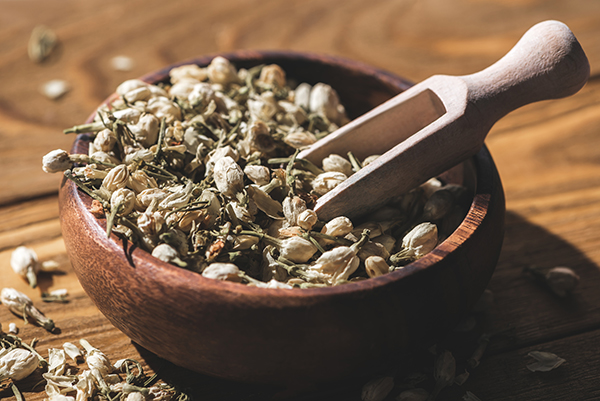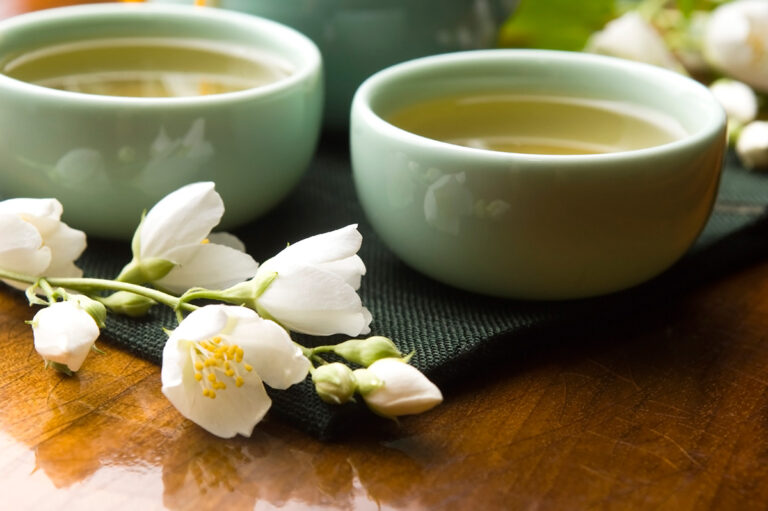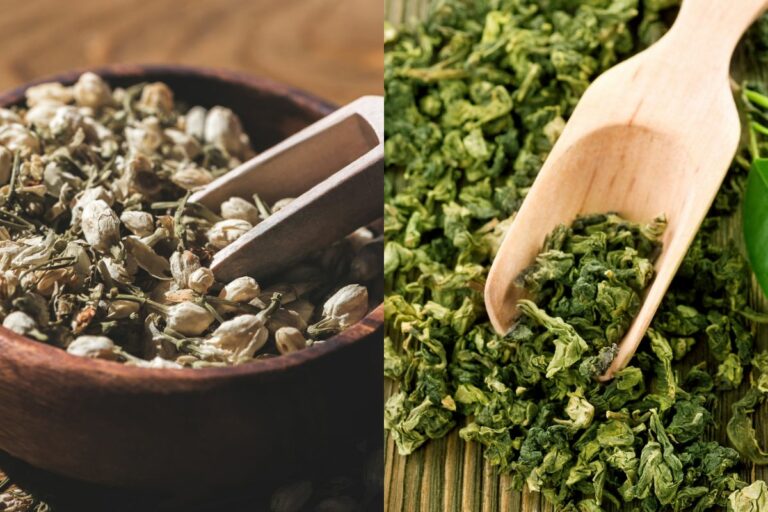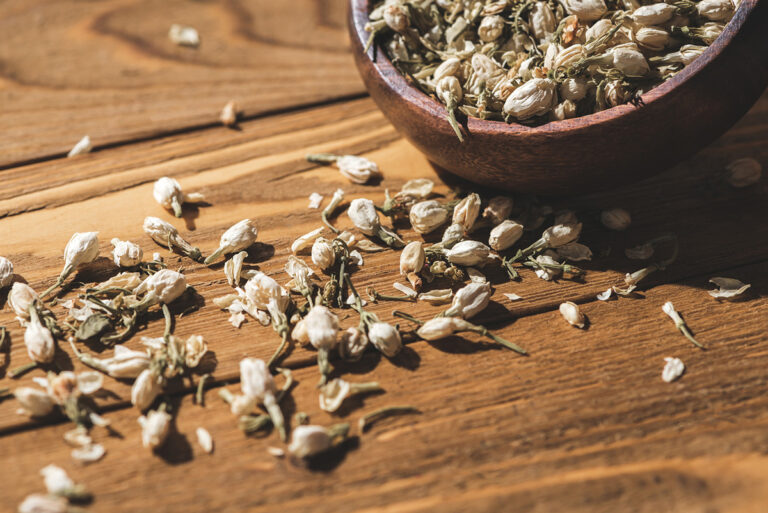Does Jasmine Tea Have Caffeine?
Jasmine tea is a popular and aromatic beverage enjoyed by many for its unique flavor and potential health benefits. Despite its popularity, questions often arise about its caffeine content and whether it can affect sleepiness or alertness.

Does Jasmine Tea Have Caffeine?
Yes, jasmine tea does contain caffeine. Jasmine tea is typically made from a base of green tea or sometimes black, white, or oolong tea, which are all derived from the Camellia sinensis plant.
The caffeine content in jasmine tea will vary depending on the type of tea used as the base, so generally, you can expect the following amount of caffeine:
| Type of Tea | Caffeine Content (mg per cup) |
| Black | 40-70 |
| Green | 20-45 |
| White | 15-30 |
| Oolong | 30-50 |
Please note that these values are approximate and can vary depending on factors such as processing, steeping time, and tea variety.
What Is Jasmine Tea?
Jasmine tea is a fragrant and soothing type of tea made by infusing tea leaves, typically green tea, with jasmine flowers. The tea leaves are scented by either layering them with fresh jasmine blossoms or mixing them with jasmine essential oil. The process can be repeated several times to create a more intense jasmine aroma and flavor.
Jasmine tea originated in China and has been enjoyed for centuries for its delicate floral aroma, sweet taste, and potential health benefits. While green tea is the most common base for jasmine tea, it can also be made with black, white, or oolong tea leaves.
The combination of the tea base and jasmine flowers creates a unique and calming sensory experience, making jasmine tea a popular choice among tea enthusiasts.
Does Jasmine Tea Make You Sleepy or Awake?
The effect of jasmine tea on sleepiness or alertness depends on its caffeine content and individual sensitivity to caffeine. As jasmine tea typically contains caffeine from its base tea leaves (green, black, white, or oolong), it may have a mildly stimulating effect, making some people feel more awake and alert.
However, the caffeine content in jasmine tea is generally lower than that of coffee or even some other teas. Additionally, the floral aroma of jasmine can have a calming and soothing effect, which might make some people feel more relaxed.
Overall, your individual response to jasmine tea will depend on your sensitivity to caffeine and how your body reacts to the tea’s aroma and ingredients. If you find that jasmine tea makes you feel sleepy, it might be best to enjoy it in the evening or as a relaxing drink before bedtime. If it makes you feel more awake, you can consume it during the day to stay alert and focused.
Which Teas Have the Most Caffeine?
Among the different types of tea derived from the Camellia sinensis plant, black tea generally contains the highest levels of caffeine. However, the caffeine content can vary depending on factors such as processing, steeping time, and tea variety.
Here’s a general ranking of tea types based on their average caffeine content, from highest to lowest:
- Black tea: 40-70 mg per 8-ounce cup
- Oolong tea: 30-50 mg per 8-ounce cup
- Green tea: 20-45 mg per 8-ounce cup
- White tea: 15-30 mg per 8-ounce cup
It is important to note that these are approximate values, and the actual caffeine content can vary significantly between specific tea blends and brands.
Additionally, other teas, like yerba mate, which is not derived from the Camellia sinensis plant, can also have a high amount of caffeine (typically 30-50 mg per 8-ounce cup).
Which Teas Have No Caffeine?
Herbal teas, also known as tisanes, are caffeine-free since they are made from a variety of plants, fruits, and spices other than the Camellia sinensis plant. Herbal teas do not contain tea leaves and, therefore, have no caffeine content.
Some popular caffeine-free herbal teas include:
- Chamomile tea: Made from chamomile flowers, this tea has a gentle, calming effect and is often consumed before bedtime.
- Peppermint tea: Derived from peppermint leaves, this tea has a refreshing taste and may help with digestion.
- Rooibos tea: Originating from South Africa, rooibos tea is made from the leaves of the Aspalathus linearis plant and has a naturally sweet, slightly nutty flavor.
- Hibiscus tea: Made from the dried flowers of the hibiscus plant, this tea has a tangy, fruity taste and a vibrant red color.
- Lemon balm tea: This tea is made from the lemon balm plant and has a mild lemon flavor with a hint of mint.
These are just a few examples of caffeine-free herbal teas. Countless other options are available, so you can choose based on your taste preferences and desired health benefits.
However, always check the ingredients of a tea blend, as some may contain a mix of herbal and traditional tea leaves, which would introduce caffeine into the blend.
Best Jasmine Teas for Your Next Cup
The market is filled with various types of jasmine teas, some of which contain more caffeine than others. If you’re interested in giving jasmine tea a try, here are some of the best options to consider.
Final Thoughts
Jasmine tea does contain caffeine, with the amount varying based on the type of tea used as its base. The stimulating or calming effects of jasmine tea depend on an individual’s sensitivity to caffeine and how their body reacts to the tea’s aroma and ingredients. While black tea generally has the highest caffeine content, herbal teas offer caffeine-free alternatives for those looking to avoid the stimulant.



